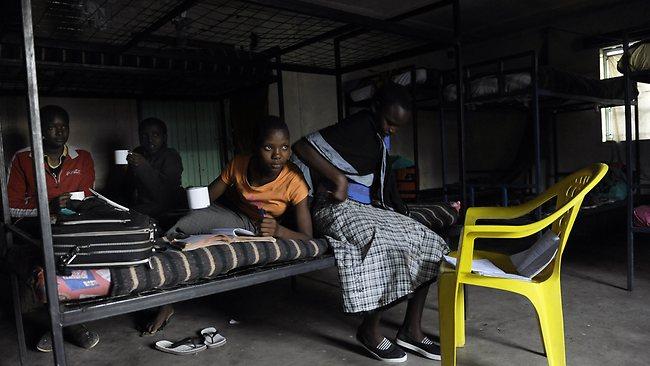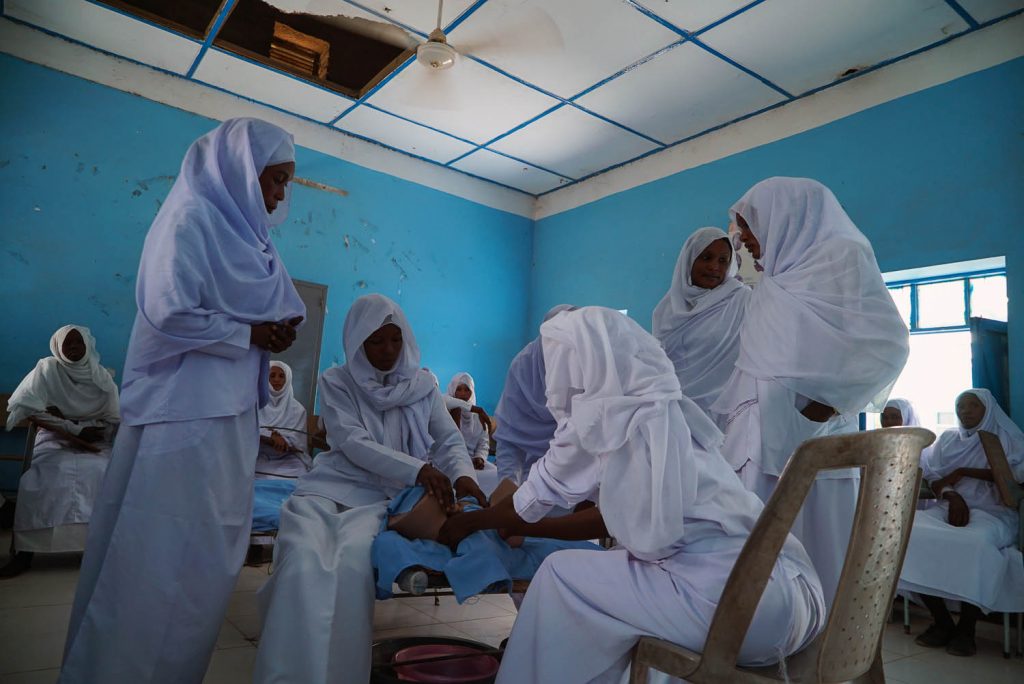
Sudanese midwives must stop performing female genital mutilation (FGM) on new mothers, health experts said on Thursday, adding that it was undermining broader efforts to wipe out the internationally condemned practice.
Women’s rights have moved into the spotlight in Sudan after women played a prominent role in street protests which led to the ousting of autocratic ruler Omar al-Bashir in April.
Campaigners said they were very hopeful the new transitional government would ban FGM in 2020.
About 87% of women in Sudan undergo FGM, according to U.N. data. In many cases, most of the vaginal opening is sewn up after removal of the external genitalia.
In a practice known as infibulation, about a quarter of mothers have stitched up again after giving birth, according to a report this week by anti-FGM campaign group 28 Too Many.
“Reinfibulation should stop,” Nafisa Bedri, professor in reproductive health at Ahfad University for Women in Omdurman, told the Thomson Reuters Foundation by phone.
“It puts the woman at risk if she delivers again and makes sexual relations difficult.”
Sami Momin, secretary-general of Sudan’s Obstetrical and Gynaecological Society, said women often had multiple births meaning they could be reinfibulated half a dozen times.
Complications included cysts as big as lemons, infections, bleeding, injury to the urethra, painful sex and inability to orgasm, he said.
POLYGAMY
World leaders have pledged to end FGM which affects an estimated 200 million girls and women globally.
Although millions of dollars have been poured into eradicating the secretive ritual, reinfibulation is rarely talked about.
Campaigners said many Sudanese women were convinced by their midwife that reinfibulation would make them look “neat and beautiful” again for their husbands.
Momin, a member of the National Task Force on FGM, said polygamy fuelled the practice, with a woman often fearing her husband would take another wife if she did not keep him happy.
Another problem is that community midwives, who do not receive a salary but are paid by each woman they assist, rely on the money they earn from FGM to boost their income.
“We need to train midwives, we need to educate the public and we need to have laws with punishments,” Momin said.
Bedri said a woman may also be reinfibulated before making a pilgrimage or if she wants to remarry “to make her look like a virgin again”.
Women who are reinfibulated are more likely to have their own daughters cut, she added.
Many Sudanese believe cutting is a religious requirement.
Bedri, also a member of the National Task Force, said they were working with religious leaders to explain this was not so.
Campaigners said hurdles remained but attitudes were changing.
“It’s no longer an issue that people are too scared to talk about,” Bedri said.

